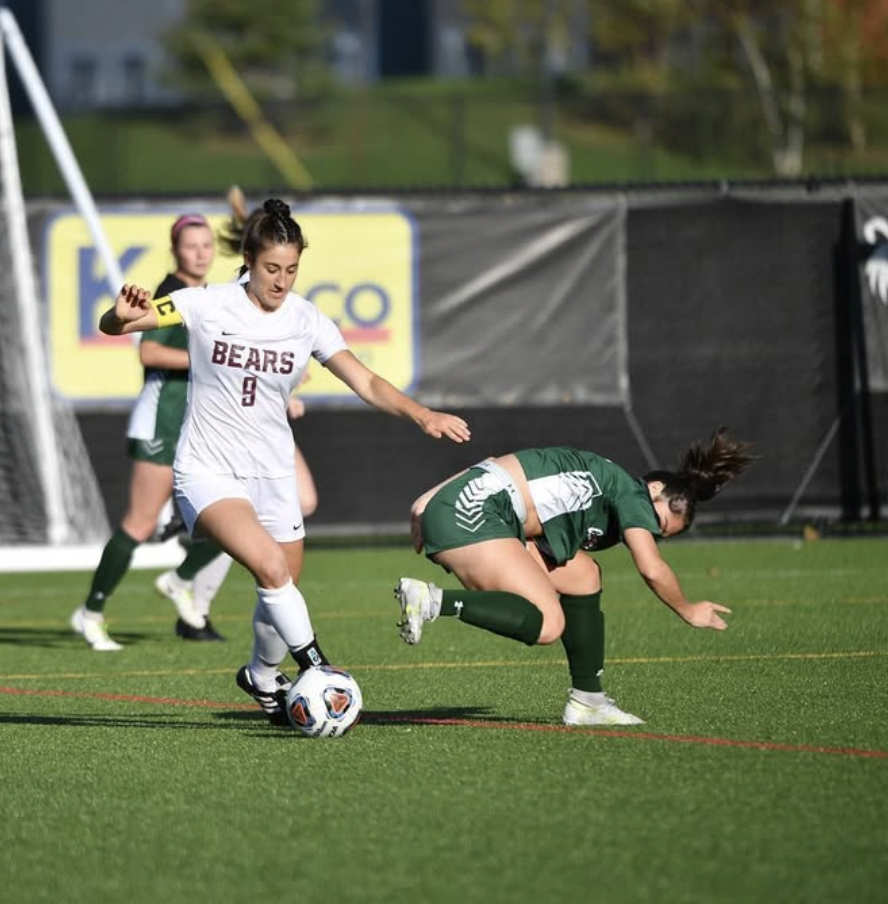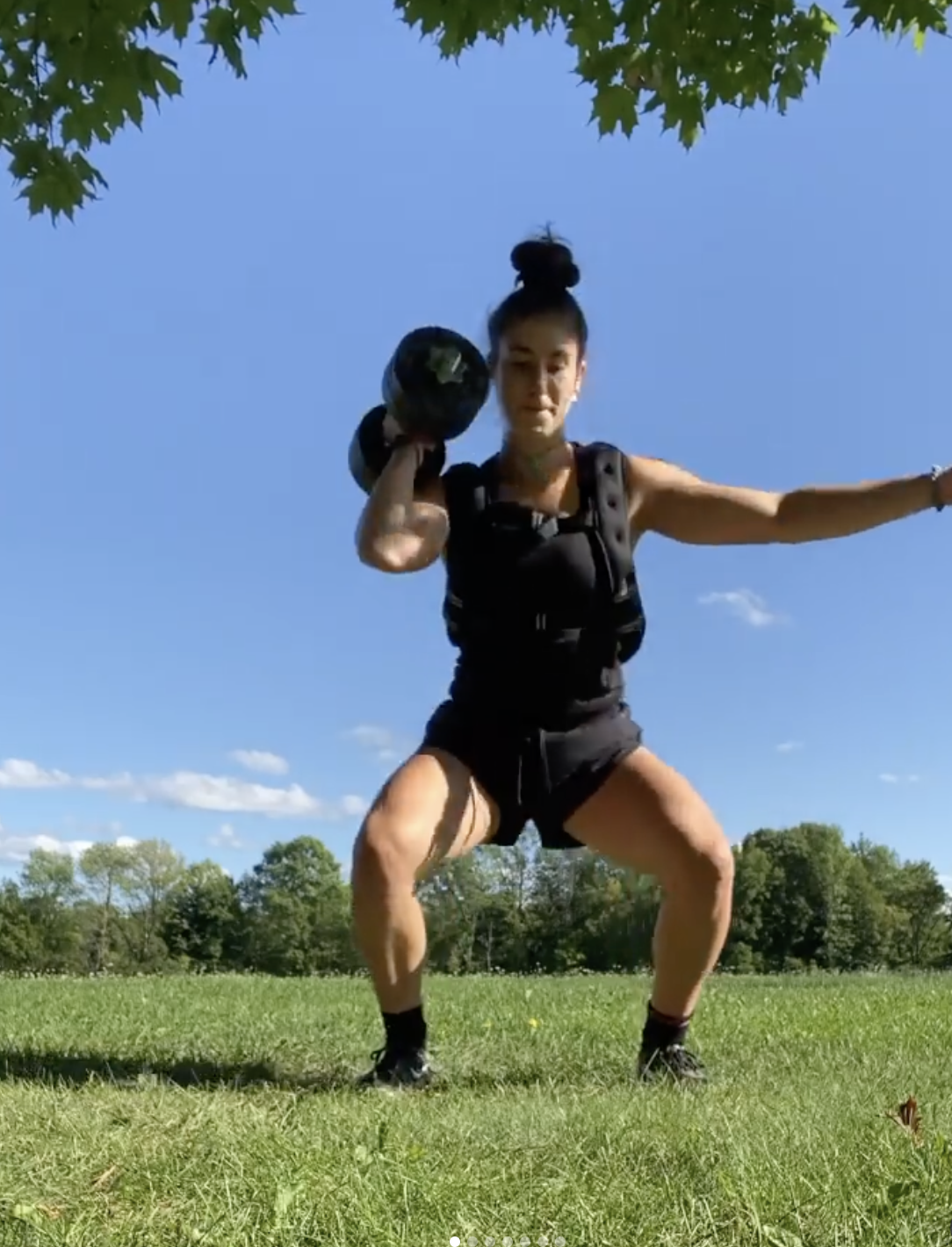Mastering Movement, Mindset, And Recovery with Strength Coach Emily Metz
Welcome back Gabarra Soccer team,
this week, we chatted with Emily Metz. The former Navy Womens Soccer Strength and Conditioning coach gave us such meaningful perspective, and I know you’ll walk away with plenty of practical tips and information to grow your game.
Let me share a quick background:
Metz graduated with an undergrad degree of Bachelor of Science in Exercise Science with a Nutrition Minor. And a Master of Science in Applied Physiology & Kinesiology with Human Performance Concentration. Along with loads of experience with elite athletes, she holds industry-respected certifications including CSCS (Certified Strength and Conditioning Specialist), USAW Level 1 (USA Weightlifting Level 1 Coach Certification), and FMS Level 1 (Functional Movement Screen Level 1 Certification). With this, she is equipped to not only train athletes for peak performance, but also to assess movement, reduce injury risk, and coach Olympic lifts with detail.
Metz has lead me personally through numerous workouts, so I can say from first hand experience that she is the real deal. Not only are her workouts meticulous, enjoyable and beneficial to my goals, but she is personable and her expertise goes way beyond just the gym. I have learned so much from her and I know you will too.
Ok enough from me… lets get into it.
What are 3 foundational habits athletes should be doing daily to perform at a high level?
EM: Movement quality over everything. Do the simple things really well, with everything (from warmup, to lift, to recovery). Mastering the basics and building a strong foundation is what sets athletes up for long-term success. You don’t earn the “fun and fancy” stuff until you’ve put in consistent work with quality movement. When you stack quality habits over time, that’s when real results happen.
Fuel and hydrate your body. Too many athletes overlook the importance of using food as fuel and staying properly hydrated. It’s not just about eating “clean” or hitting macros. I’d say most of the time, the biggest issue I see is not eating enough. I tell my athletes this all the time: food is fuel. I give them general guidelines on what solid nutrition looks like, but more importantly, I make sure they’re getting enough in and building healthy, sustainable habits. And when it comes to hydration, it’s more than just chugging water, you need to replenish electrolytes too, especially around training.
Recovery is just as important as the work. Learning to listen to your body is a skill that too many athletes skip over. It’s not always easy to pull back or take a rest day, especially when your instinct is to push harder. But that’s where real discipline kicks in. Sometimes the mental battle is knowing when to go all in… and when to take a step back. Recovery isn’t soft, it’s smart. It requires education, self-awareness, and intention. I’d argue it takes more discipline to train with strategy than to grind nonstop. The goal is to stay in the game long-term, and that only happens when you recover just as hard as you train.
Say an athlete only has 30 minutes to train in the gym — how would you build that session to be the most effective use of their time?
EM: It depends on the athlete, their training age, lifting ability, and what phase of the season they’re in. But if I’ve only got 30 minutes, I’m keeping it focused and intentional. First, I’d address any red flags or common issues I see in soccer players: poor hip mobility, groin or lateral hip weakness, foot/ankle/lower, tight hip flexors, those always need attention.
Then, I’d start the session with some type of sprint, jump, or bound variation to wake up the nervous system and reinforce power and elasticity. After that, I’m picking 3–4 movements the athlete is already proficient in so they can hit them with high intensity and clean execution. My go-to picks: a hang power clean, a squat or lunge variation, a pull-up variation, and a push-up or horizontal press. Simple, efficient, and effective.
If you could design the “ideal weekly training schedule” for a soccer player, what would it include?
EM: If I could design the ideal weekly training schedule for a soccer player (in-season), it would be efficient, intentional, and adaptable. Everything depends on the time of season, game schedule, and how the athlete’s body is responding, but assuming we’re in-season, the priority is to keep lifts short, focused, and high intensity with low volume. You don’t want to take away from performance on the field.
I’d make sure we’re hitting the right buckets throughout the week: maintaining strength and power, reinforcing movement quality, and keeping speed work micro-dosed into sessions. Sprint and plyometric work doesn’t need to be a full session, small doses can be built right into a warm-up, especially pre-practice. It’s about staying sharp, not smoked.
Most importantly, I prioritize communication. I check in regularly to see how an athlete is actually feeling. I’m not afraid to pivot if an athlete’s body is telling us something different. You can’t force a rigid plan on an athlete, especially in a sport with so many physical and mental demands. Smart training is responsive training.
Can you give us your daily non-negotiables to optimize your personal training sessions and physical demands of coaching?
EM: My biggest non-negotiable is making time for my own training. Movement is a priority for me—not just physically, but mentally. Getting my own lift or session sets the tone for my day and allows me to show up as a better coach and leader. When I train, I feel more grounded, more energized, and more intentional with how I coach others.
What are your go-to tools or protocols for optimizing sleep and recovery?
EM: I’ll be honest, I used to be a lot better with these, and I don’t always practice what I preach, but I’m working on it. A few things that make a big difference are getting outside in the morning, even just for a quick walk. It helps reset your circadian rhythm and gives you some clarity before the chaos of the day. Avoiding late meals right before bed. I know this one’s tough, especially for athletes with packed schedules, but when you can, try to give your body some time to digest before sleeping. Get off your phone. We live in an overstimulated world, and it makes winding down way harder than it should be. Sleep is hands-down the number one recovery tool. You can do all the mobility work, cold plunges, and supplements you want, but if you’re not sleeping, you’re leaving recovery on the table.
What underrated habits or exercises do you wish more athletes committed to?
EM: Sleep and self-awareness. Two of the most underrated habits I wish more athletes actually committed to. Everyone talks about “grinding” and “pushing through,” but the real growth happens when you start to listen to your body. Knowing when to go hard is important, but knowing when to pull back is a whole different level of discipline. That’s what keeps you healthy, consistent, and performing for the long run.
What do you emphasize during a recovery day to ensure it’s moving an athlete forward, not just giving them time off?
EM: Just move, fuel up, and decompress. Recovery days aren’t just about doing nothing, they’re about doing the right things to help your body and mind reset. Go for a walk, do some mobility, get outside. Keep it light, but stay moving. Eat well and hydrate. Honestly, use the day to relax. High stress makes it harder for the body to recover, so finding ways to mentally recharge matters just as much as the physical side. That mental reset can prevent burnout and actually lead to better, more intentional sessions when you’re back in it. Recovery should feel good and serve a purpose.
Can you leave us with a book, podcast, habit, exercise, etc that you think athletes would really benefit from?
EM: I don’t have a specific book or podcast to recommend, but I’ll leave you with a simple message that I think athletes, and honestly anyone can lean on when it comes to mindset:
Lead with integrity. Work with purpose. Treat people right. And trust that good things will follow.
Cheers!
Thank you to Metz for taking the time to share her wealth of knowledge with us all. We are lucky to learn from her!
If you are looking for more from Emily Metz check out her fitness instagram account @metzmvmt
Talk to you guys next week.
Talia

